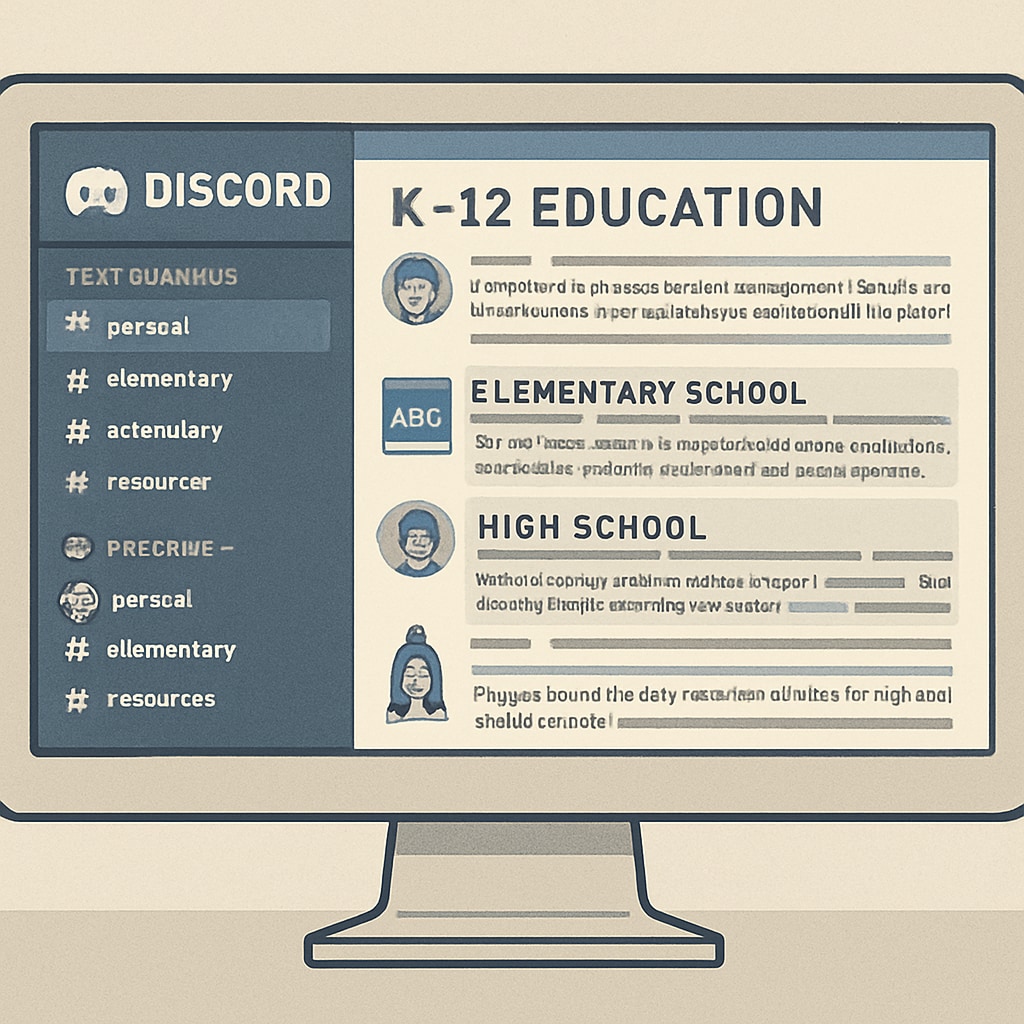For K12 education students at the University of Houston, connecting with peers through learning groups and platforms like Discord can be transformative. These resources foster academic collaboration, skill enhancement, and professional networking, providing a solid foundation for success in the field of education. In this article, we explore the importance of academic communities and provide actionable strategies to find and create effective learning resources and platforms.

The Importance of Learning Groups in K12 Education
Learning groups are essential for fostering collaboration and mutual support among students pursuing K12 education. These groups provide a safe environment to discuss theories, share teaching strategies, and solve problems collectively. For example, students in a learning group can analyze case studies together, brainstorm solutions for classroom challenges, or prepare for exams collaboratively.
Moreover, learning groups contribute to professional growth by exposing students to diverse perspectives. This diversity encourages critical thinking and creativity, which are vital skills for educators. According to Britannica’s education section, peer learning helps students develop communication and leadership skills that are directly applicable to their future teaching careers.
Utilizing Discord for Online Collaboration
Discord has emerged as a powerful tool for academic collaboration, especially among tech-savvy university students. Originally popular in gaming communities, Discord now serves as a versatile platform for organizing study sessions, sharing resources, and hosting discussions. Its user-friendly interface and customizable features make it an ideal choice for University of Houston students looking to enhance their academic experience.
Here are some tips for using Discord effectively:
- Create dedicated channels for specific topics, such as curriculum planning, instructional design, or classroom management.
- Use voice calls and screen-sharing features for interactive study sessions.
- Establish rules to maintain a respectful and productive environment.
By joining or creating Discord communities, students can stay connected with their peers and access valuable resources anytime, anywhere.

Strategies for Building Academic Communities
Developing strong academic communities requires intentional effort and strategic planning. Here are some steps to get started:
- Identify Common Goals: Determine the shared objectives of your community, such as improving subject knowledge or preparing for certifications.
- Leverage University Resources: Utilize the University of Houston’s student organizations, academic centers, and online portals to connect with like-minded students.
- Promote Engagement: Encourage members to participate actively by organizing events like workshops, guest lectures, or peer feedback sessions.
- Integrate Technology: Use platforms like Discord or Google Workspace to streamline communication and resource sharing.
As a result, these strategies not only enhance academic collaboration but also foster long-term professional relationships within the field of K12 education.
Conclusion: Empowering K12 Education Students
Building academic communities through learning groups and platforms such as Discord is a crucial step for K12 education students at the University of Houston. These resources provide opportunities for collaboration, skill development, and professional networking, ensuring students are well-prepared to excel in their careers. By leveraging university resources and embracing technology, students can create dynamic and supportive environments that enhance their academic journey.
Take action today: Join a learning group, explore Discord communities, or start building your own academic network at the University of Houston. Empower yourself and others to succeed in the field of K12 education!


